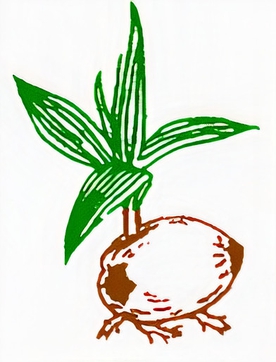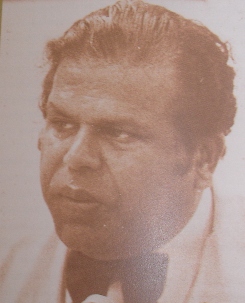
The Fiji Labour Party, also known as Fiji Labour, is a political party in Fiji. Most of its support is from the Indo-Fijian community, although it is officially multiracial and its first leader was an indigenous Fijian, Dr. Timoci Bavadra. The party has been elected to power twice, with Timoci Bavadra and Mahendra Chaudhry becoming prime minister in 1987 and 1999 respectively. On both occasions, the resulting government was rapidly overthrown by a coup.

The Alliance Party, was the ruling political party in Fiji from 1966 to 1987. Founded in the early 1960s, its leader was Kamisese Mara, the founding father of the modern Fijian nation. Widely seen as the political vehicle of the traditional Fijian chiefs, the Alliance Party also commanded considerable support among the Europeans and other ethnic minorities, who, although comprising only 3–4% of Fiji's population, were over represented in the parliament. Indo-Fijians were less supportive, but the Fijian-European block vote kept the Alliance Party in power for more than twenty years.
Irene Jai Narayan was an Indian-born teacher and politician, who had a significant influence on politics in Fiji. She came to Fiji in 1959 after marrying Jai Narayan, a well known school Principal in Suva, and began her career as a teacher. She taught in DAV Girls School and MGM High School in Suva before entering politics.

Siddiq Moidin Koya was a Fijian Indian politician, Statesman and Opposition leader. He succeeded to the leadership of the mostly Indo-Fijian National Federation Party (NFP) on the death of the party's founder, A. D. Patel, in October 1969, remaining in this post until 1977. He later served a second term as leader of the NFP, from 1984 to 1987.

General elections were held in Fiji between 15 and 29 April 1972, the first since independence from the United Kingdom in 1970. They were characterised by the lack of rancour between racial groups, typical of the 1966 general election and the 1968 by-elections.

General elections were held in Fiji between 19 March and 2 April 1977. As a result of a split in the ethnic Fijian vote, the ruling Alliance Party of Prime Minister Kamisese Mara suffered a narrow defeat. Although the Alliance Party received the most votes, it won only 24 seats, two fewer than the Indo-Fijian-dominated National Federation Party (NFP). One seat was won by the Fijian Nationalist Party, with the remaining seat going to an independent candidate, Osea Gavidi.

Early general elections were held in Fiji between 17 and 24 September 1977. They followed elections in March which resulted in a hung parliament and no party able to gain a majority. The new election resulted in a landslide win for the Alliance Party (Fiji) led by Prime Minister Kamisese Mara, which won 36 seats out of 52. It was aided by a split in the main opposition, the National Federation Party (NFP) and a decline in support for the Fijian Nationalist Party.

General elections were held in Fiji between 4 and 11 April 1987. They marked the first electoral transition of power in Fijian history. Despite receiving just under 50% of the vote, the Alliance Party of longtime Prime Minister, Kamisese Mara was defeated by a coalition of the Fiji Labour Party and National Federation Party, which won 28 seats to the Alliance's 24. The Labour Party's Timoci Bavadra became Prime Minister.

The National Federation Party is a Fijian political party founded by A.D. Patel in November 1968, as a merger of the Federation Party and the National Democratic Party. Though it claims to represent all Fiji Islanders, it is supported, in practice, almost exclusively by Indo-Fijians whose ancestors had come to Fiji between 1879 and 1916, mostly as indentured labourers. However, in the 2018 general election, the party recorded a considerable change in its support base due to the inclusion of more indigenous Fijian candidates.
Sir Vijay Raghubar Singh, KBE was an Indo-Fijian lawyer and politician who held Cabinet office in the 1960s and 1970s. Vijay Singh served in Prime Minister Ratu Sir Kamisese Mara's government in a variety of positions, including Attorney-General, and was president of the Indian Alliance, a division of the ruling Alliance Party. He quit the party in 1979 following disagreement with Alliance leadership and later joined the opposition National Federation Party. Vijay Singh was involved in the restructure of the Fiji sugar industry and was a leading member of the Jaycees movement in Fiji.

General elections were held in Fiji between 26 September and 8 October 1966, the last before independence in 1970 and the first held under universal suffrage. The result was a victory for the Alliance Party, which won 23 of the 34 elected seats. Its leader Kamisese Mara became the country's first Chief Minister the following year.

Communal constituencies were the most durable feature of the Fijian electoral system. In communal constituencies, electors enrolled as ethnic Fijians, Indo-Fijians, Rotuman Islanders, or General electors vote for a candidate of their own respective ethnic groups, in constituencies that have been reserved by ethnicity. Other methods of choosing parliamentarians came and went, but this feature was a constant until their final abolition in the 2013 Constitution.

National constituencies were a former feature of the Fijian electoral system. They were created as a compromise between demands for universal suffrage on a common voters' roll, and for a strictly communal franchise, with Parliamentary constituencies allocated on an ethnic basis and elected only by voters enrolled as members of specific ethnic groups.

Western United Front (WUF) was an ethnically Fijian political party formed prior to the 1982 elections and contested the election in coalition with the National Federation Party . The party was in response to the disenfranchisement of indigenous peoples in the Western Provinces of Viti Levu as despite the presence pf major economic drivers of the country located in their areas they lack representation on the decision making table of the country.
James Shankar Singh, MBE was a Fiji Indian farmer, businessman, social worker and politician who served as a Minister in the Alliance Government of Ratu Sir Kamisese Mara. Like many Fiji Indian politicians of the era, he joined the Alliance Party with a belief in mutiracialism, but was disappointed with the Alliance Party's appeal to Fijian nationalism after 1977 and left the Alliance to join the National Federation Party.
Mohammed Taiyab Khan was an Indo-Fijian politician and lawyer. Between 1966 and 1977 he served as a member of the Legislative Council, Senate and House of Representatives. He was also Minister for Commerce, Industries and Co-operatives from 1972 to 1976.
Ratu Osea Gavidi was a Fijian politician and indigenous chief. He was prominently involved in defending the interests of the indigenous people in the western part of Fiji, seeking to establish their political autonomy, then their independence.
Shiu Narayan Kanhai was an Indo-Fijian teacher, trade unionist and politician. He served as a member of the House of Representatives between 1977 and 1982.






